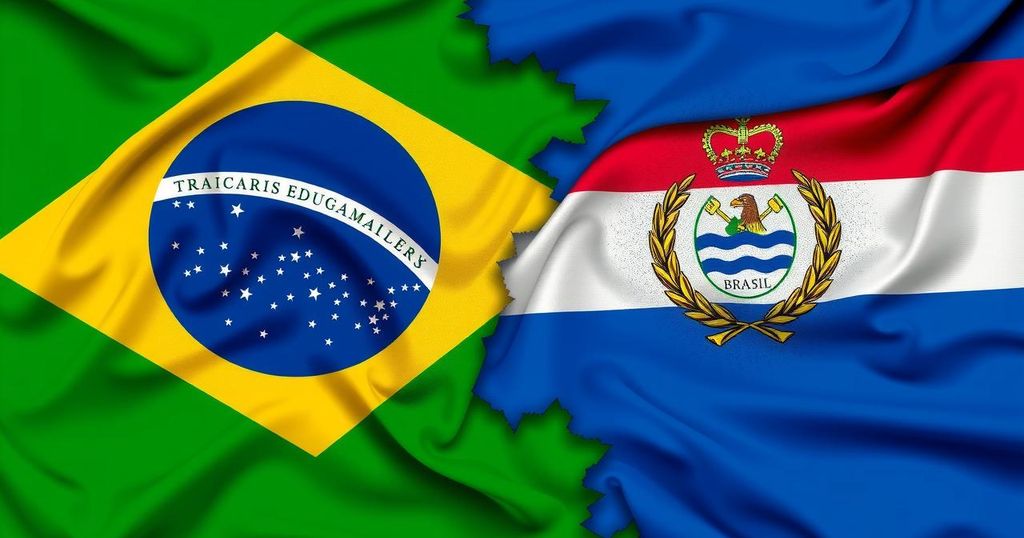Brazil Considers Orsi’s Election as a Strategic Alliance in South America
Brazil celebrates Yamandú Orsi’s victory in Uruguay, viewing it as a strategic alignment against Javier Milei’s ideology in Argentina. Insiders predict enhanced political dialogue and collaboration within Mercosur. The support from Brazil, Uruguay, and Bolivia signifies a united front, while close cooperation in CELAC and the Brasília Consensus is envisioned. Lula’s prompt congratulatory call to Orsi emphasizes the importance of this partnership for regional dynamics.
Brazil views the election of Yamandú Orsi in Uruguay as a pivotal opportunity to strengthen its regional alliances against the ideological advances of Javier Milei in Argentina. The federal capital of Brazil, Brasília, celebrated Orsi’s victory, signaling a potential shift in political dynamics in South America. Insiders from President Lula’s administration believe this outcome will foster closer political dialogue and collaboration, notably within the economic bloc Mercosur. They anticipate that former President Pepe Mujica, whom Orsi regards as his mentor, will play an influential role in the administration’s strategies.
Diplomatic sources indicate that three of the five prominent countries within the bloc—the governments of Brazil, Uruguay, and Bolivia—are moving towards a unified front against Milei’s ideology. However, it is pertinent to note that Bolivia’s current lack of substantial decision-making power may limit its influence. Additionally, there are expectations for intensified cooperation in organizations such as CELAC (Community of Latin American and Caribbean States) and the conceptual framework known as the Brasília Consensus, which was introduced by Lula during his third presidential term and has been influenced by Mujica’s insights.
Lula was quick to extend his congratulations to Orsi following his electoral success, highlighting the importance of this partnership for future regional integration. As these countries seek to navigate ideological differences and bolster their collective resilience, the commitment to collaborative initiatives within regional organizations will be vital for curbing opposing political trends. In sum, as Orsi assumes office, the focus will significantly shift towards achieving common regional goals in the face of burgeoning ideological challenges posed by Argentina.
The recent election of Yamandú Orsi in Uruguay has sparked significant interest in Brazil, particularly among political insiders within President Lula’s administration. Given the rising influence of Javier Milei in Argentina, whose ideology poses challenges to leftist policies in the region, the alignment of political leadership in Uruguay with Brazil creates opportunities for enhanced cooperation. Historical ties between leaders and previous administrations will likely guide the strategies these countries employ in cooperative frameworks. Mercosur, a regional trade bloc, along with organizations like CELAC, represent critical platforms for these nations to counteract ideological shifts. The involvement of influential figures such as Pepe Mujica, who is respected for his tenure as Uruguay’s president, underscores the potential for strategic alignment and collaboration among left-leaning governments in South America.
The election of Yamandú Orsi marks a significant alignment of leftist governments in South America, particularly between Brazil and Uruguay, as they prepare to counter the ideological challenges posed by Javier Milei in Argentina. With increased diplomatic engagement and a shared commitment to regional cooperation through multilateral organizations, these nations are poised to reaffirm their collective purpose. The anticipated role of former leaders such as Mujica further solidifies the collaborative efforts, suggesting a renewed chapter for South American politics as they navigate their ideological landscape.
Original Source: www1.folha.uol.com.br




Post Comment